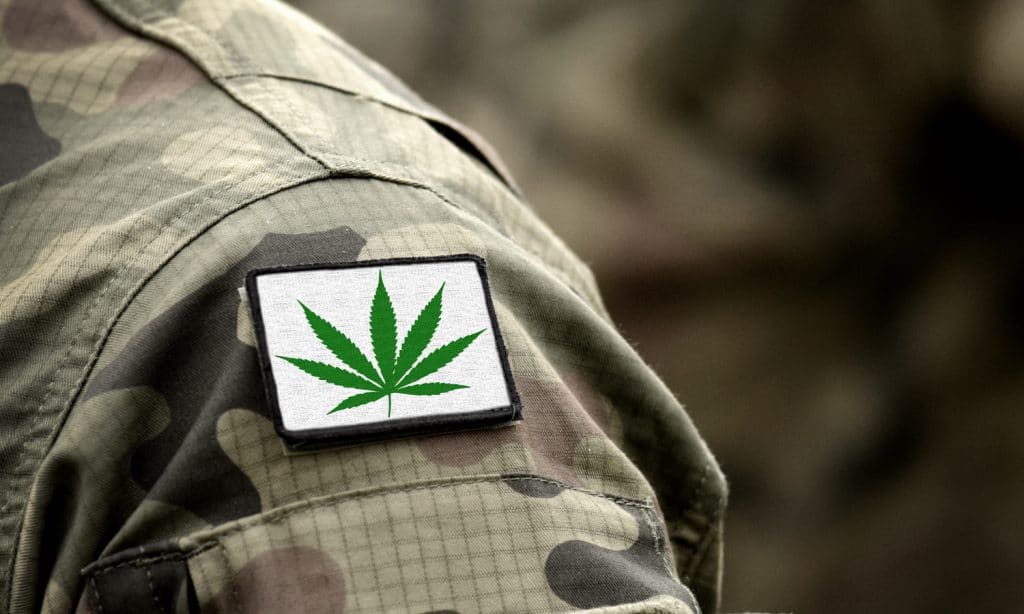
Cannabis advocates have been screeching and screaming for the past decade about how marijuana is more effective in taming post-traumatic stress disorder (PTSD) than any other drug known to man. But, a long-awaited, FDA-approved study dedicated to learning more about the efficacy of cannabis against this affliction shows that isn’t necessarily true. It finds that while weed is a safe and commonly used treatment option for those marred by this condition, it isn’t as effective as initially believed.
Now, before you go off the deep end and start drumming up wild conspiracy theories about how the federal government’s health agencies are holding back the truth concerning the power of cannabis, you should know that this study was overseen by Dr. Sue Sisley of the Scottsdale Research Institute. Sisley has been a massive proponent of medical marijuana for years, doing everything in her power to fight for answers to whether cannabis can help military veterans suffering from PTSD. She fought for nearly a decade to get permission from Uncle Sam to launch this research, and her team spent the past three years in the trenches digging for answers.
All for unimpressive results.
The $2 million study, funded by the Colorado Department of Public Health and Environment (CDPHE) to the Multidisciplinary Association of Psychedelic Studies (MAPS), was as legit as they come. Researchers selected 76 vets with PTSD, giving them a mix of cannabis with THC levels between 8-12%.
Some of the participants were given a placebo.
In the end, researchers didn’t find any evidence that the vets who got THC were any better off than the placebo group. In fact, the ones who got the placebo thought they had actually been given the real thing. “The study did not find a significant difference in change in PTSD symptom severity between the active cannabis concentrations and placebo by the end of Stage 1,” the study authors wrote. “All three active concentrations of smoked cannabis were generally well tolerated.”

Researchers believe the quality of cannabis had something to do with the lackluster results. Researchers have complained since day one that they couldn’t get their hands on better weed. Which is true. All of the research marijuana grown for the federal government is done at the University of Mississippi. It has long been argued that the quality and potency of this product is subpar for research purposes. Especially considering the higher standard of cannabis being sold in legal states.
RELATED: Survey Shows 75% Of Veterans Are Interested In Cannabis
“This study took seven years to obtain approval and three years to conduct at a cost of $2.2 million. The difference between anecdotal reports and these results may be the quality of the marijuana,” said Rick Doblin, Ph.D, Executive Director of MAPS, “which highlights the need for further well-controlled clinical trials that more closely represent currently available marijuana products. Higher quality cannabis flower suitable for Food and Drug Administration (FDA) approval is currently unavailable domestically due to restrictions on production imposed by the U.S. Department of Justice and Drug Enforcement Administration and must be imported.”
That’s the route researchers will go next.
RELATED: Study Shows Cannabis Temporarily Relieves PTSD Symptoms
Dr. Sisley insists that her team will move on and try to conduct more comprehensive cannabis studies. “Despite the absurd restrictions federal prohibitionists have placed on research for more than 50 years, we are squarely focused on launching further Phase 2 trials with imported cannabis of tested, higher potency, fresher flowers that will provide a valid comparison for the millions of Veterans and others with PTSD who are looking for new options,” Sisley said in a statement.
Unfortunately, the results of the latest study do not bode well for the immediate future of cannabis medicine. Although cannabis advocates and some lawmakers are constantly pushing for vets to be given legal access to medical marijuana, a failed $2 million study doesn’t exactly support their argument. Rest assured, the medical community will use this data in the coming years as a reason to keep PTSD patients on pharmaceuticals. We’re sure the anti-depressant companies are pleased.





